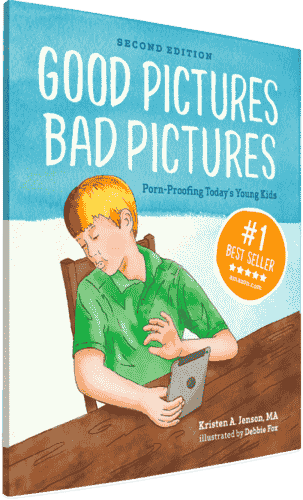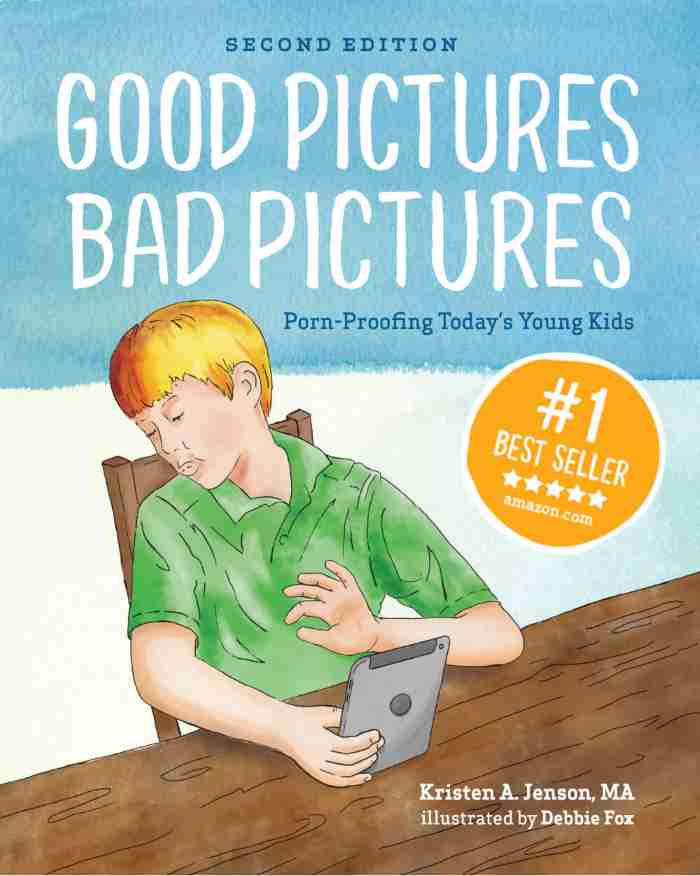
3 Reasons Kids Keep (Dangerous) Secrets
Note: This is my 100th post! Yay! OK, I just needed everyone to know. Hey, if you're looking for a reason to indulge in chocolate or, even better, ice cream, go ahead and celebrate with me!
Why Do Kids Keep Secrets from Their Parents?
In an ideal world, kids would automatically tell their parents everything that troubled or embarrassed them, like being exposed to pornography. But the truth is, they often don’t. And in this world of mobile devices spewing graphic content, social media bullying, online child predators trolling innocent video games (need I go on?), it can be dangerous for kids to keep secrets.
Is Anyone Home?
One day, when I was six or seven years old, I went a few houses down our street to see if my friends could play. Their front door was slightly ajar and I rang the doorbell. When no one answered, I decided it would be a good idea (???!!!) to go inside and look for them. I searched throughout the house for my friends, but no one was home. As (bad) luck would have it, just as I came out of the front door, the family drove up. “What were you doing in our house?” my friend yelled. It was at that moment I realized I must have done something terribly wrong. I didn’t stay to answer her question; I simply bolted for home, feeling scared and confused. I was so ashamed. I didn’t want to tell anyone.
Who did I finally confess to? My oldest sister. She had noticed I wasn’t my usual perky self and asked me what was wrong. After she assured me that I’d feel better after I told someone, I fessed up. And guess what? I did feel better!

Be Specific: It's a Confusing World
As parents, it's helpful to remember that young kids are still learning to navigate a very confusing world. They don't know all the rules yet. They don’t know how to respond to the many new situations they face. Especially ones in their online neighborhood that are embarrassing and troubling (and potentially dangerous).
I didn't know that entering my neighbor's house to look for my friends was wrong when I was that young. And I had no idea that I could get relief from my shame by telling my sister what had happened. I had to be taught that.
Take away? Remind your kids that they can and should come and tell you when they feel embarrassed or upset for any reason. (Or if they ever see pornography.)
"You Can Tell Me Anything"

Here's how one mom used an upsetting experience to bring this message home. She and her two sons, ages four and seven, were at an indoor trampoline park. Her youngest came running over and told her, "There’s a boy kissing everyone over there!" When her older son came back from that same area, she asked him, “What’s going on over there?” At first he hesitated and said, “Nothing.” Knowing that something was amiss, this wise mom took a moment to assure her son that he could tell her anything, and gently encouraged him to trust her. Only then did he tell her about the boy who was going around kissing everyone and making the kids feel uncomfortable.
Why the hesitation?
I believe there are three main reasons why kids keep their feelings of embarrassment or shame from their parents.
1. Kids need to be coached to confide in you
I believe kids need to be coached when it comes to confiding in parents and reporting embarrassing experiences. They need to hear over and over again that you want and expect them to come and tell you when others (including friends or family) act inappropriately. Or when they themselves have done something they’re not sure was appropriate (hey, we all make mistakes). Promise them you won't freak out and they'll feel better. (You can imagine how a secret is a huge burden for a young child to carry.)

Our concerned mom in Good Pictures Bad Pictures specifically asks her young son to come and tell her if he ever sees pornography. And she reassures him that he won't get into trouble when he does.
I believe kids need to hear this kind of specific encouragement on a regular basis.
2. Kids are afraid
Kids’ fears can overcome their common sense. Their feeling brain often rules their thinking brain. And fear can inspire, well, fear.

The little boy in the story above might have been afraid of his mom's reaction or overreaction. He sensed that this other boy's behavior (kissing everyone) didn't feel right, but he just wasn't sure how to react. Would his mom scold him for not protecting his little brother, for not coming and telling her sooner? Would his mom make them leave early or, worse, never bring them to the trampoline park again?
My advice? Keep reassuring your kids that they can tell you anything. And when they do, praise them. And try not to overreact.
Want your kids to share their feelings with you? Read this post on emotional awareness for some practical tips.
3. Kids don’t want to lose their technology

According to Donna Rice Hughes, President and CEO of Enough is Enough, a non-profit organization dedicated to Internet safety, when it comes to reporting porn exposure, one of the major reasons kids don’t tell their parents is because they’re afraid they’ll be grounded from using their iPads, smartphones, video games or from going online. I attended a teleconference interview of Ms. Hughes and learned that she advises parent not to completely ban kids from using technology or the Internet, but to train them how to use it and avoid its dangers. Their website InternetSafety101.org is a great place for parents to find good information about a range of online safety issues.
Now it's your turn!
I've listed three reasons why kids are afraid to share their secrets with their parents. Can you think of any others? Thanks for joining the conversation! I love to read your comments!
[[CTA]]



Good Pictures Bad Pictures
"I really like the no-shame approach the author takes. It's so much more than just 'don't watch or look at porn.' It gave my children a real understanding about the brain and its natural response to pornography, how it can affect you if you look at it, and how to be prepared when you do come across it (since, let's face it... it's gonna happen at some point)." -Amazon Review by D.O.







